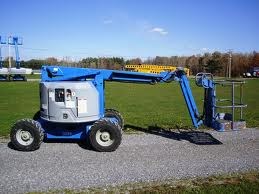
Do You Need a License to Operate Rented Heavy Equipment at Home?
February 7, 2025
Renting heavy equipment for a home project can be a cost-effective way to tackle large-scale tasks like landscaping or construction.
However, many homeowners wonder: do you need a license or certification to operate this equipment?
Let’s break down the requirements and provide the guidance you need for safe and compliant operation.
Understanding Licensing Requirements
The first step in determining whether you need a license is to understand the difference between licensing and certification.
While there’s no national or industry-standard heavy equipment operator license in the U.S., specific regulations may apply based on the type of equipment you are operating and your location.
Federal rules and state-level requirements vary, so it’s essential to familiarize yourself with both.
Equipment That May Require a License
Some heavy equipment may require a Commercial Driver’s License (CDL) or certification. For example:
-
Equipment with a Gross Vehicle Weight Rating (GVWR) exceeding 26,000 pounds, like bulldozers and large excavators, typically requires a CDL.
-
Cranes with a capacity to lift over 2,000 pounds must comply with OSHA certification standards, including written and practical exams.
If you’re planning to use such equipment, ensure you meet the necessary licensing criteria before operating.
When a License is Not Required
Not all heavy equipment requires a license.
Smaller tools like skid steers , mini-excavators , and compact loaders often fall below the GVWR thresholds, meaning you can operate them without a CDL.
However, even for these, proper training is critical to ensure safety and efficiency.
OSHA Training Requirements
The Occupational Safety and Health Administration (OSHA) mandates that operators of powered industrial trucks—such as forklifts—undergo training and evaluation.
While this is primarily aimed at workplace safety, the same principles apply to home use. Completing a training course can significantly reduce risks and help you get the most out of your equipment rental.
Local Regulations and Exceptions in Wilmington, NC
In Wilmington, NC, as in many other locations, there are no specific licensing requirements for most heavy equipment used for personal projects.
However, it’s still advisable to check with local authorities or your equipment rental provider to ensure compliance with city or county ordinances.
Broadly, regulations may vary for equipment used near public spaces or projects that require extensive grading or excavation. Always verify local rules before starting your project.
Certification vs. Licensing for Personal Use
Even if a license isn’t required, completing a certification program can provide peace of mind.
Training programs, like those offered by A-Z Rentals’ equipment training services , prepare you to operate machinery safely and confidently.
After completing a program, you’ll receive an operator’s card—a valuable credential for both personal and professional use.
Key Safety Considerations
Regardless of licensing or certification requirements, safety should always be a priority. Here are a few essential tips:
-
Read the equipment manual thoroughly before operating.
-
Wear appropriate protective gear, including helmets, gloves, and steel-toed boots.
-
Inspect the equipment for damage or malfunctions before use.
-
Keep children and pets away from the work area.
-
Consult with the professionals at your local equipment rental.
By following these guidelines, you can ensure a safer and more productive experience.
Conclusion
While licensing requirements for operating rented heavy equipment at home are minimal, understanding the relevant regulations and completing proper training can enhance your safety and success.
For more information about training options, visit A-Z Rentals’ equipment training and certifications page . With the right preparation, your home project can be completed efficiently and confidently.